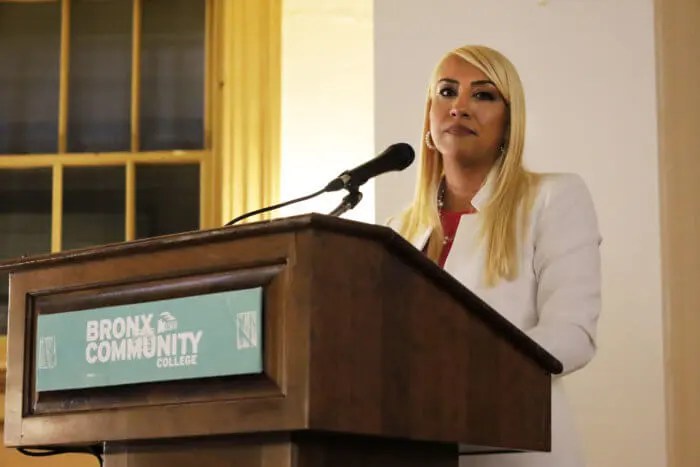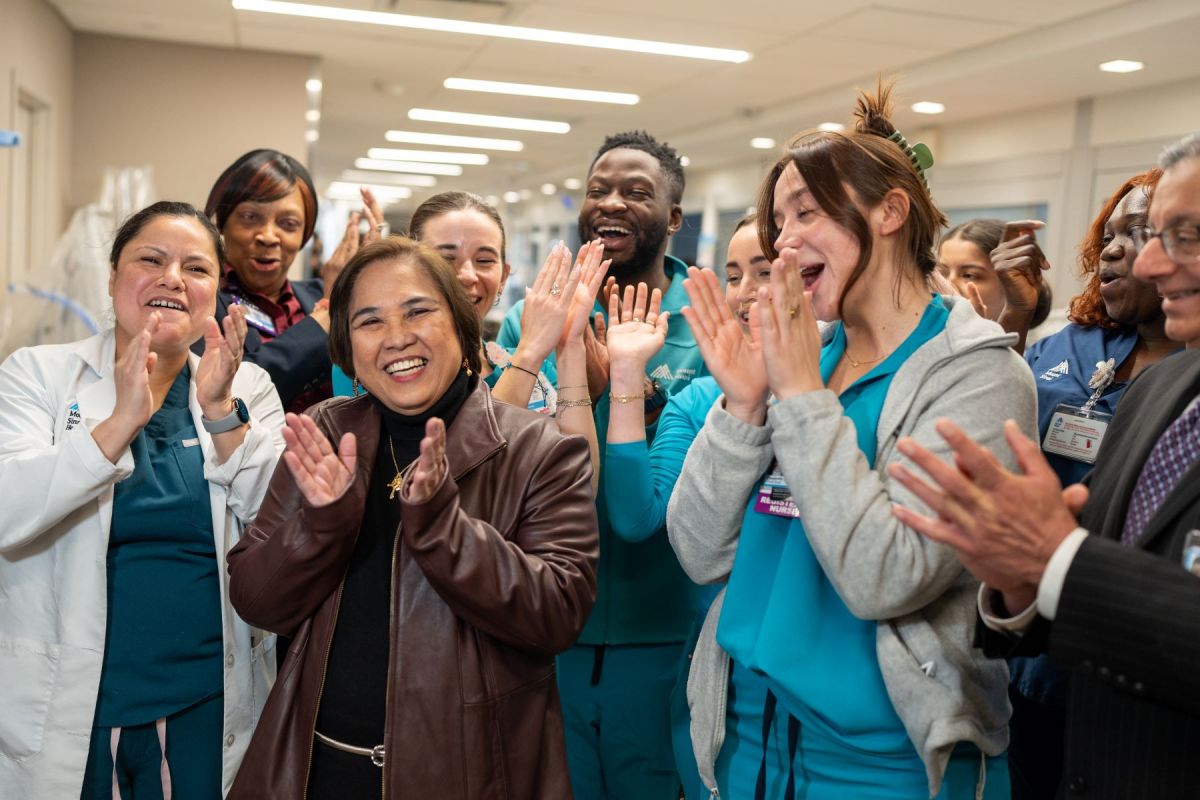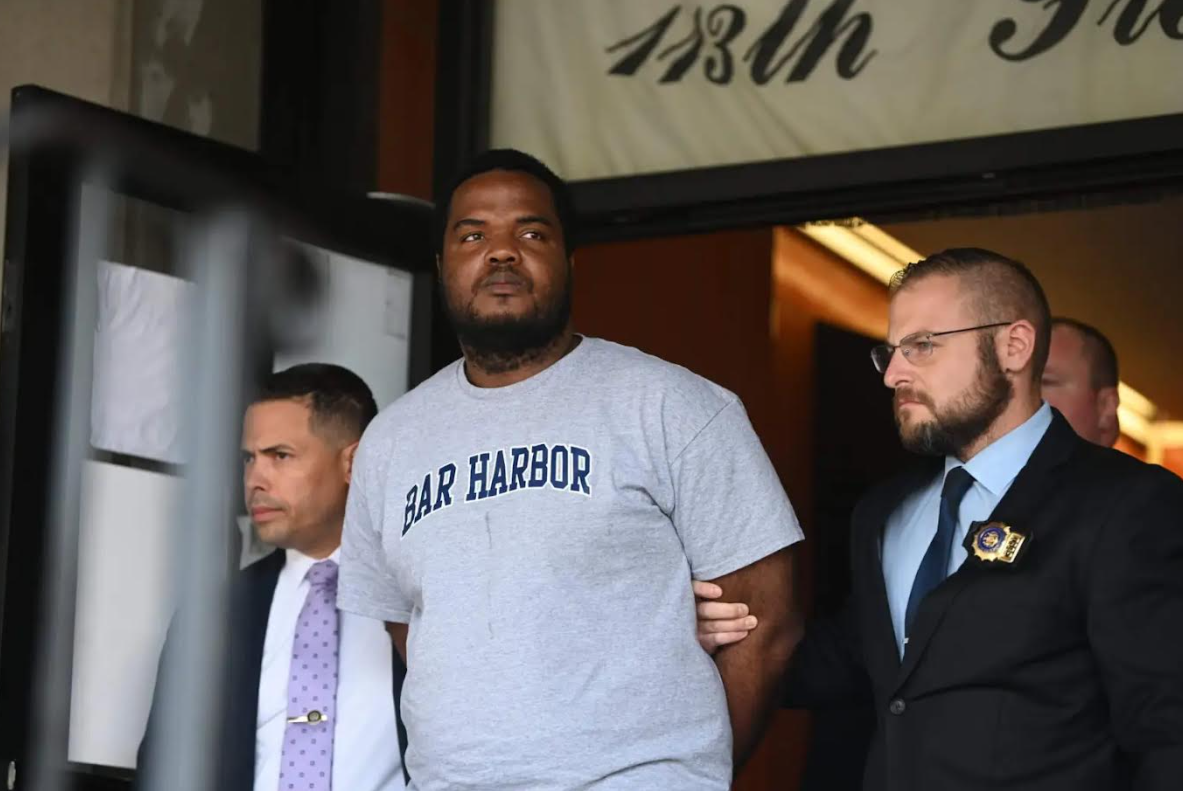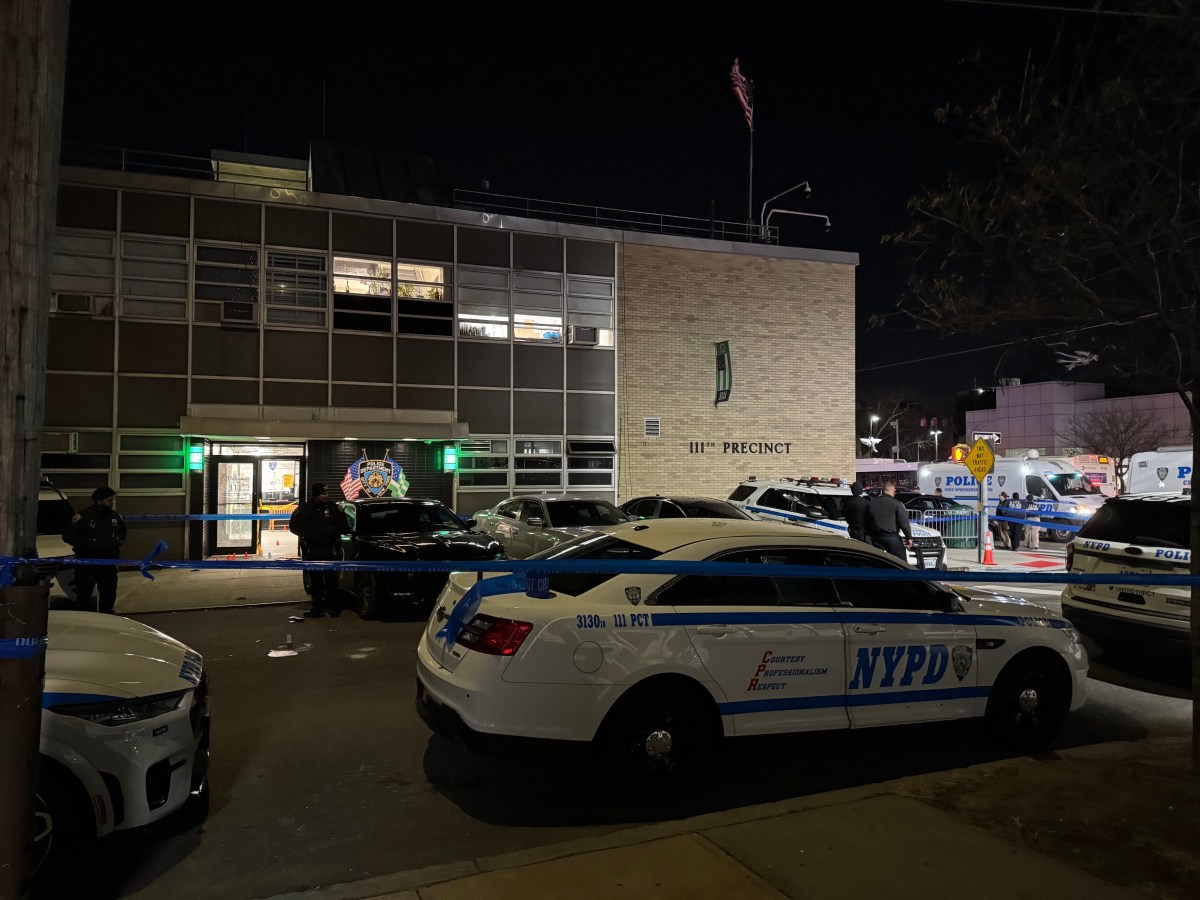As Bronx County Clerk, Ischia Bravo proudly stands out in style and substance.
A self-described community activist, Bravo is the first female Latina to serve as the borough’s county clerk.
But her operation as commissioner of jurors is even more unconventional: Since taking the job in 2022, Bravo hasn’t issued any fines to Bronx-ites who don’t show up for jury duty.
“During my two-year tenure, I have not done non-compliance,” Bravo told amNY Law. “I don’t have any intention of doing that anytime soon,” adding she wouldn’t change course “unless we are completely in a drought [for jurors]… I don’t think that we should penalize folks for lack of understanding and lack of civic engagement.”
The fine for not responding to jury duty — up to $250 under state law — “hurts you,” Bravo said “It hurts your credit. It hurts you obtaining property, and that is something that I will not hinder any Bronxite from getting.”
So far, though, the results of a carrot rather than a stick approach to attracting jurors remains stubbornly low: The questionnaire that forms the initial step of qualifying for jury duty in the Bronx has a 23% response rate, Bravo said.
“It’s abysmal, right? It’s not the best one right now, but it does work for now. We’re not running out of jurors,” she said. “But if something isn’t done sooner rather than later, then it’s not going to ensure democracy in our courts.”
In New York City, unlike the rest of the state, county clerks aren’t just the record keeper for the supreme court; they also serve as the commissioner who is responsible for assembling qualified jurists.
For a jury duty fine to be imposed, the commissioner of jurors first has to initiate a proceeding against residents for non-compliance. Bravo said that people who don’t respond to jury summons are often just “confused and lost.” She doesn’t want them to associate penalties with her office.
Prior roles shaped Bravo’s approach to getting jurors to participate through “outreach” events at community meetings. Bravo previously served as a community board district manager and executive director of the Bronx Democrats. As county clerk, she said that she’s been going to community meetings to make the case for the importance of jury duty to people in-person.
“I feel representation matters when they are familiar with the face, someone who looks like them, who’s been in the trenches from the same communities, I think that I can help de-stigmatize some of their fears in recruiting them,” Bravo said.
In running the office this way, Bravo has created a social experiment to find out if educating Bronx residents on their jury duty obligation is more effective than a penalty.
But after two years, she has yet “to fully launch” her juror outreach program to more civic organizations because her office has been short-staffed, Bravo said. And despite her concerns about the potential financial damage of fines, Bravo did not know how much the fine was for neglecting jury duty.
From the County Party to County Clerk
If Bravo’s interpretation of the office makes her sound more like a legislator than a career bureaucrat it’s probably because she’s worked around politicians for most of her career. The role of county clerk is a three-part title that boils down to jury responsibilities, maintaining records of all supreme court cases in the county and storing documents that don’t involve litigation, such as new business or religious institution certifications.
From 2008 to 2015, Bravo managed campaigns and finances for the Bronx Democratic Party as its executive director under the leadership of then-Chairman and now Speaker of the New York State Assembly, Carl Heastie.
“I come in and kind of have that innovative brain from previous roles and bring all that experience here,” she said.
When she stopped working for the county party, she became a manager for a northwest Bronx community board for several years. During this time, she unsuccessfully primaried Assemblymember Jose Rivera in 2016 and then ran for City Council in 2021 but lost in the Democratic primary to sitting Councilmember Oswald Feliz.
She then applied for the opening that popped up after her county clerk predecessor Luis M. Diaz pleaded guilty for falsifying that an organized-crime defendant had completed his court-mandated community service.
Bravo described her priorities as “transparency, efficiency and accessibility.” She said she was motivated to take the county clerk job to “continue to serve an underserved borough.” Since the judicial branch often has the reputation for being the most obscure part of New York’s state government, she wanted to restore public trust through “effective service delivery.”
Her career as a public servant stems from her experience growing up in public housing in the Bronx in a household that often lacked enough food, before she got deeply involved in student advocacy at CUNY’s Hostos Community College and learned how to lobby the state Legislature for capital improvements.
“The inequities really pushed me into where I was like, ‘Hey, I can make change,’” she said.
Two years into the position, she said her biggest accomplishment has been taking on the clerk office’s “entrenched culture. I think that’s something I’ve been able to kind of break barriers on.”
Some of the changes Bravo pointed to seem abstract or a work in progress. She said she has worked with administrative judges to create a new filing system for divorces that involves sending her staff to physically pick them up earlier — a process that can mean “literally saving someone months from getting a document.” Beyond that she described her approach as “brokering relationships” with different parts of the court system so that “we don’t operate in silos.”
When she took the job, Bravo felt it was imperative to improve the juror facilities. She described outfitting them with “the most state-of-the-art technology in New York,” meaning new PA systems, video projectors and microphones for her staff giving instructions. Other facilities improvements are less showy, but just as necessary like new coats of paint and floor maintenance, and the addition of tablets to make case searches for the public easier. Along with other New York City county clerks, Bravo has been working to digitize court records.
She called responsibilities as commissioner of jurors her “favorite roles coming from being a community advocate and fighting for infrastructure and civic engagement and participation.”
The next big project Bravo is planning will renovate her office’s website to provide more services and information online as a way to “alleviate the foot traffic” of residents who need to come to the courthouse in person for their needs.
”I’ve served in every level of government, city, state and federal government. And the essence of everything I’ve always done has been quality of life and services, right? I think that that is no different here” Bravo said. “I’m still a community advocate at heart. I don’t think that’s ever going to go away.”





































